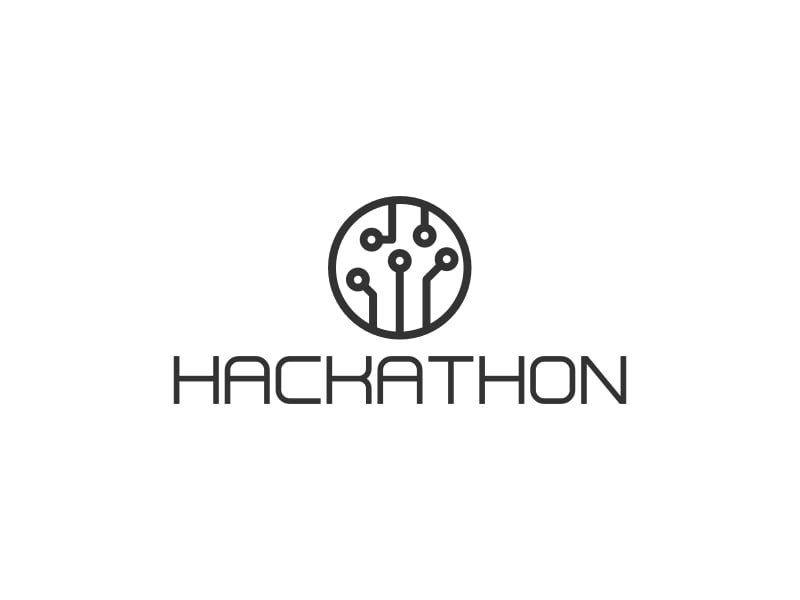Whether you’re aiming to solve payment issues, improve savings behavior, or develop tools for underserved communities, fintech hackathon ideas can spark real-world impact.
These fast-paced, innovation-driven events challenge developers, designers, and problem-solvers to build smart financial solutions in a limited time.
If you’re passionate about technology and finance, there’s no better way to put your skills to the test than participating in a fintech hackathon.
Whether you’re prepping for your next hackathon or seeking inspiration for a startup, these ideas can serve as the foundation for your next big breakthrough. Let’s dive into the world where finance meets innovation!
During these events, developers, designers, and entrepreneurs collaborate intensively to build functional prototypes, apps, or platforms that address real-world financial problems such as payments, lending, banking, insurance, or personal finance management.
To get the most out of a FinTech hackathon, participants should focus on understanding the problem deeply, leverage APIs and fintech tools effectively, and build user-centric solutions that demonstrate clear value. Strong teamwork, good communication, and agile development practices also increase the chances of success.
From mobile wallets to AI-driven credit scoring systems, the possibilities are endless. In this article, we explore 10 cool fintech hackathon ideas that blend creativity with practical problem-solving—perfect for beginners and pros alike.
What Is a FinTech Hackathon?
Financial technology product creation is a component of a FinTech hackathon, such as this one for Worldline. These hackathons produce new financial products by combining marketing, coding, and design.
The following subjects may be covered at a FinTech hackathon:
- Individual financial
- planning Controlling risks
- The blockchain Banks for
- retail Trading
- investing Online
- shopping Payments via mobile Data
- administration
- Compliance regulations
- enterprise social
- micropayments
- Transactions involving money
Application programming interfaces (APIs) and other technology platforms are made available to participants in FinTech hackathons.
Since participants will brainstorm, write, validate, network, and present their projects to the judges, they are not hardware hackathons.
Venture capitalists (VCs), business leaders, and entrepreneurs are frequently the judges of a FinTech hackathon.
Participants may behave alone or in groups, depending on the specifics of the occasion. FinTech could be a virtual or local hackathon.
Read also – 20+ Upcoming Hackathon Judging Opportunities in 2025
Benefits of Organising a FinTech Hackathon
Hackathon It would be very beneficial for financial institutions to conduct a FinTech hackathon.
Whether they are startups or well-established companies, these are some advantages of holding a FinTech hackathon.
Acquire Fresh Business Concepts Maybe your programmers are lacking in ideas, and Github doesn’t have comparable answers to your business issues.
A FinTech hackathon might attract new programmers to your business to try their hand at the problem.
A company’s R&D team is usually given the duty of investigating new technologies. But in this case, you are restricted to the opinions of a select few.
You can create a tonne of new financial product prototypes in a matter of hours or weeks by holding a FinTech hackathon.
FinTech hackathons may spur quick prototyping, inspire high-caliber ideas, reduce costs, and speed up the innovation process.
1. You can Advertise Your APIs
Speed up the adoption of your open API by holding a FinTech hackathon, similar to Microsoft’s Power Hack.
FinTech hackathons significantly raise the number of developers actively using the platform, which in turn increases the number of applications that use it.
By making more API requests, this procedure can also increase revenue. APIs can be marketed with the use of SDKs, GitHub articles, and hackathon FinTech events.
More developers will utilise the program and offer suggestions for enhancements as a result of the advertising.
2. Locate Potential Employees
FinTech hackathons have the added advantage of attracting tech talent to your company. Employers can draw in young programmers who want to gain experience with financial technology.
In the event that the winning teams complete a specific project, you might have acquired some new staff members.
Additionally, hackathons targeted at particular under-represented groups in computer science might be held by companies seeking to diversify.
You may rekindle the passion in your current staff by involving them in the FinTech hackathon. Additionally, you can find out more about their skills to see whether they could work in another field.
Hackathons held internally by people you already trust will also speed up the development process.
3. Boost Awareness
Organising a FinTech hackathon can generate a lot of awareness for your business. You may draw in hundreds of programmers who are interested in enhancing your financial services by advertising the event on websites such as Hackathon.com.
How to Conduct a FinTech Hackathon: A Comprehensive 7-Step Guide
These are the basic procedures you must in order to conduct a hackathon for FinTech applications.
Step 1
Identify the Goal and Issue of Your FinTech Hackathon Event Start by outlining the goal of your FinTech hackathon.
FinTech hackathon examples include investigating new technologies, promoting your business or API, hiring new people, and testing your existing workforce.
Determine the issue at hand now. You can choose whether you want participants to utilise your API to create something new or concentrate on a certain subject, like the blockchain.
Participants in the FinTech hackathon are welcome to try their hand at any business issues they are feeling stuck on. In order to assist the participants, make sure you provide them with as much information as you can.
Step 2
Establish the Time and Date The planning of a FinTech hackathon takes four to eight weeks. The scale will determine the time frame. You must decide whether to handle it in person, virtually, or a combination of the two.
In-person events will need more preparation and funding to get organised, whereas virtual events will take less time.
Step 3
Promote the Cases for the FinTech Hackathon Use sponsored advertisements, hackathon websites, and social media to promote your FinTech hackathon.
Engage individuals from within your organisation, as well as from high schools, colleges, and any other place they might be interested.
Seek to enlist individuals from a variety of fields to contribute innovative ideas to various project aspects.
Step 4
Offer Amusement During Intermissions The majority of people that attend hackathons are not interested in coding all day long.
Be careful to specify some rest periods for the hackers. Make sure you have an ample supply of food and drinks available during these times.
As the deadline draws nearer, you might also hire some keynote speakers to boost spirits. Try to make room for weary hackers to take power naps if at all possible.
Step 5
Establish a Deployment Process Implementing a deployment procedure that will transform the FinTech concepts of successful hackathon winners into real commercial services
is one method to motivate attendance. Select a panel of judges with the ability to evaluate the project’s worth,
simplicity, inventiveness, realism, and design. Entrepreneurs, venture capitalists, business executives, and financial specialists are all good judges.
Read also – 10 Best Hackathon Ideas for Software Developers in 2025
Step 6
Create Rewards In recognition of their efforts, the winning teams ought to be given some kind of reward.
Those that succeed can receive swag bags, cash rewards, promotions, or even jobs.
Step 7
Release the Findings After your FinTech hackathon is over, post the event online. Throughout the hackathon, take lots of photos to share.
Share the names of the winners as well as a synopsis of their work. In addition to honouring individuals who were successful this time, publishing the findings will aid in marketing future FinTech hackathons.
Top 10 Best Fintech Hackathon Ideas
These are 10 fintech concepts that don’t require starting from scratch and can be created using the Rehive Platform. (Work in process.) The list of concepts isn’t always novel or original. Generally speaking,
1. Paying small merchants
SnapScan is a simple and innovative payment solution that lets customers scan a merchant’s QR code using an app to make payments. What makes SnapScan unique is that merchants don’t need a phone, card reader, or internet connection to accept payments—just a printed QR code on a piece of paper is enough.
This approach makes it especially valuable for small business owners in developing countries who may lack access to traditional payment infrastructure. SnapScan empowers merchants to receive secure, cashless payments easily, helping to drive financial inclusion and support local businesses with minimal setup and cost.
2. Lease deposit escrow payments
One of the most practical fintech hackathon ideas is a lease deposit escrow payment app. In the rental market, many tenants face difficulties retrieving their security deposits—even when they meet all lease terms. This app would securely hold lease deposits in escrow, only releasing the funds when both tenant and landlord meet agreed conditions.
Smart contracts or third-party verification could ensure a transparent and fair resolution process. By protecting both parties and reducing disputes, this solution introduces trust and accountability into leasing agreements. It’s one of the most impactful fintech hackathon ideas for real estate and property tech innovation.
Read also – Top 12 Virtual Hackathon Platforms in 2025
3. Tipping app
A great example of fintech hackathon ideas is a digital tipping app called Tipper. This app allows users to tip waiters or waitresses directly by adding their credit card to the platform. Instead of relying on cash, users can instantly send tips through the app after their meal.
Tipper also includes a feedback feature that lets users leave a short message for both the restaurant owner and the staff, creating a transparent and rewarding experience. By digitizing the tipping process, this idea not only ensures accurate payouts but also improves staff morale and customer engagement—making it a smart and relevant fintech solution.
4. Apps that tip intriguing digital content straight to social media
A creative entry among fintech hackathon ideas is a social media-based digital tipping app that lets users send money directly to content creators using their social media handles, such as @username. This app enables seamless micro-transactions by allowing users to tip creators for posts, videos, or live content across platforms like Instagram, TikTok, or X (Twitter).
Tips are held in a “Pending” state until the recipient connects and verifies their account, ensuring privacy and control. Unclaimed tips can expire or be reclaimed, keeping the system clean. Tippers who forget to complete payment details can be reminded later—an effective growth hack that improves conversion.
This idea supports financial inclusion for digital creators, influencers, and freelancers, especially in emerging markets, and adds a fresh monetization layer to social platforms. It’s an innovative example of how fintech hackathon ideas can empower the creator economy through smart, user-driven financial tools.
5. Setting up a subscription service
One of the most innovative fintech hackathon ideas is building a subscription tipping app for digital content creators. This app allows users to set up recurring monthly tips sent directly to a creator’s social media handle, such as @username. Unlike one-time tipping, this model creates a steady stream of micro-income for creators, influencers, and streamers.
Users can choose how much they want to contribute each month—say, $2, $5, or more—and the app handles automatic payments. It’s a lightweight and user-friendly alternative to traditional patronage platforms. By tying tips to social media handles, creators can receive support across any platform without needing to share private payment details.
6. A reminder app for payment
One of the more practical fintech hackathon ideas is a payment reminder app designed for social settings. Picture this: after a night out, you cover the tab for your friends. Instead of awkward follow-ups, the app sends friendly, automated reminders asking them to pay you back for beers or food. While similar apps exist in developed countries, this concept remains underutilized in many emerging markets.
This app could integrate with local mobile wallets, social platforms, and messaging apps for seamless notifications and payments. By making peer-to-peer payments more casual and less confrontational, it fills a cultural and technological gap.
7. Payment request for specific needs:
One of the most unique fintech hackathon ideas is a location-based payment request app. This platform allows users to request money from friends, family, or even the local community for specific items or services that are only available at nearby businesses.
Whether it’s raising funds for a school supply run, a birthday cake, or emergency medicine, donors can send money that is redeemable only at designated local vendors. This ensures funds are used exactly as intended. It’s a practical tool for accountability and community-driven support, making it a standout among fintech hackathon ideas aimed at real-world impact.
Read also – How Dratech is Helping the Tech World Grow Through Hackathons and Awards
8. Business payment request
A standout among fintech hackathon ideas is a business payment request app that simplifies invoicing for service-based companies. This application would allow businesses—especially freelancers, consultants, and SMEs—to create and send professional payment requests or digital invoices directly to clients. Users can include details like services rendered, amount due, due dates, and payment options (bank transfer, mobile money, or card).
The platform could support automated reminders, tax calculations, and secure transaction tracking, helping businesses get paid faster and manage their cash flow more efficiently. It bridges the gap between service delivery and payment collection, making it a practical solution in the fintech space.
9. Gift-based payment requests
One of the most thoughtful fintech hackathon ideas is a gift-based payment request app. This app allows users to start personalized fundraising campaigns to celebrate milestones like birthdays, graduations, weddings, or baby showers for friends and family members. Instead of receiving physical gifts, the recipient can collect monetary contributions from loved ones through secure digital payments.
The app can feature themed templates, goal tracking, and group messaging to enhance the experience. Donors can add messages, select preset amounts, or contribute anonymously. This idea adds emotional value to fintech by merging digital finance with celebration and community support—making it a heartfelt and creative entry for any hackathon.
10. Group savings
One of the most collaborative fintech hackathon ideas is a group savings app that enables friends, families, or roommates to collectively save toward a shared goal. Whether it’s for a vacation, holiday celebration, or furnishing a common space, users can create a savings group, set a target amount, and invite others to contribute.
Each member can track their progress, schedule contributions, and receive reminders. The app can include features like automated transfers, milestone badges, and even a shared chat for coordination. This promotes accountability, transparency, and teamwork—making saving social, fun, and goal-driven. It’s a perfect solution for communities seeking financial organization.
FAQS
What is a fintech hackathon?
A 36-hour hackathon called Ingenious Hackathon 6.0 aims to enable students to develop cutting-edge resources that advance financial literacy in underserved areas.
What is a finance hackathon?
Using financial data and APIs, a fintech hackathon produces creative concepts and fintech prototypes that address typical problems in the financial services industry.
What is the theme in a hackathon?
Theme Types In order to help organisations stay ahead of the curve and take advantage of AI’s full potential, hackathon topics on AI can concentrate on useful applications like intelligent assistants, predictive analytics, or process automation .
Conclusion
Fintech hackathon ideas offer exciting opportunities to innovate and solve real-world financial challenges. From digital tipping to escrow solutions and group savings, these ideas blend creativity with practical impact. Whether you’re a beginner or a pro, hackathons are the perfect stage to build tools that reshape how we interact with money.





